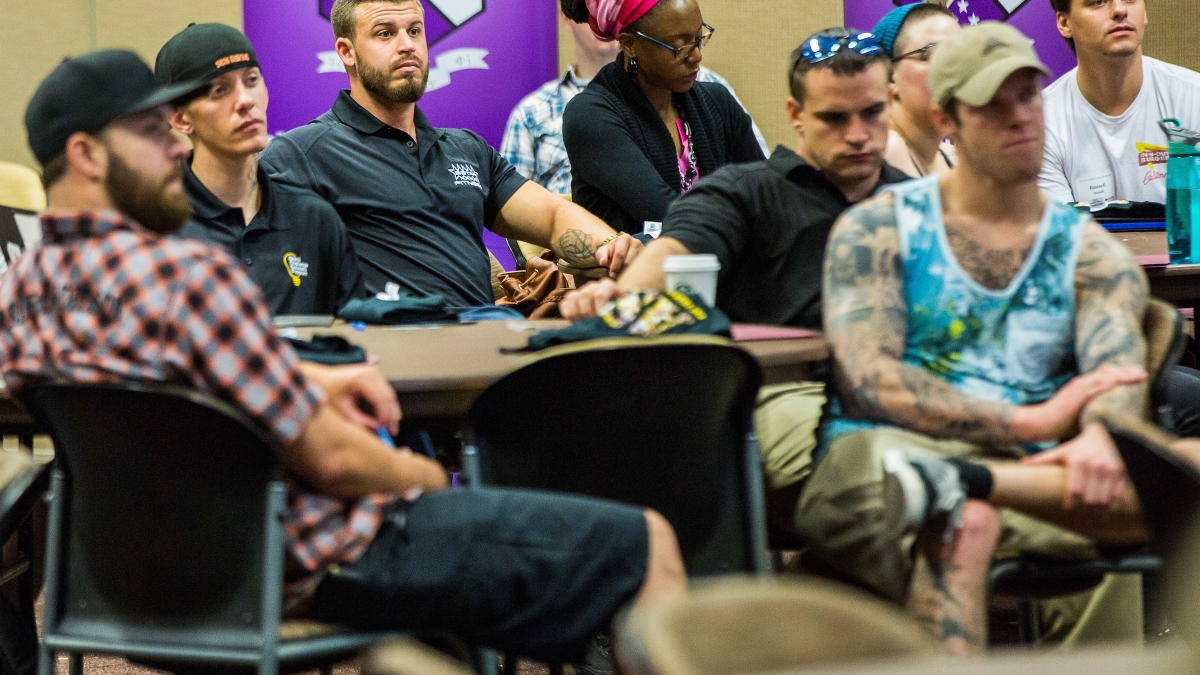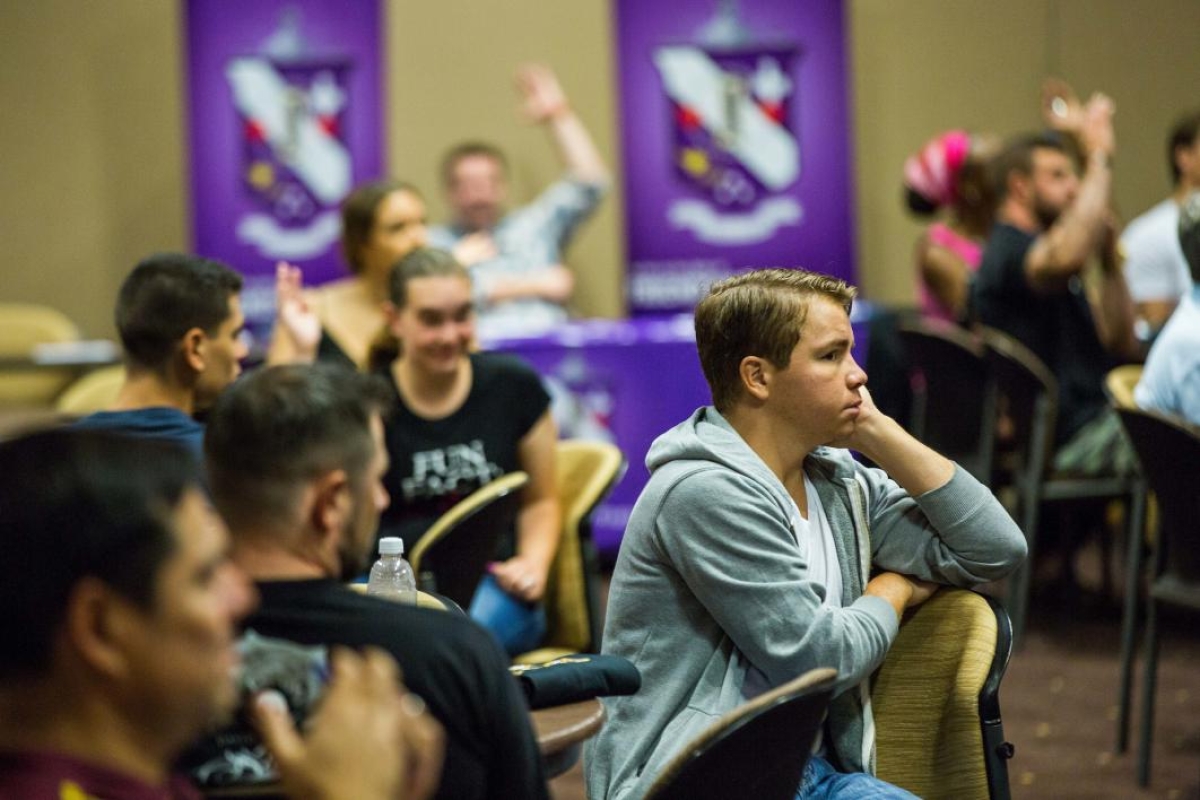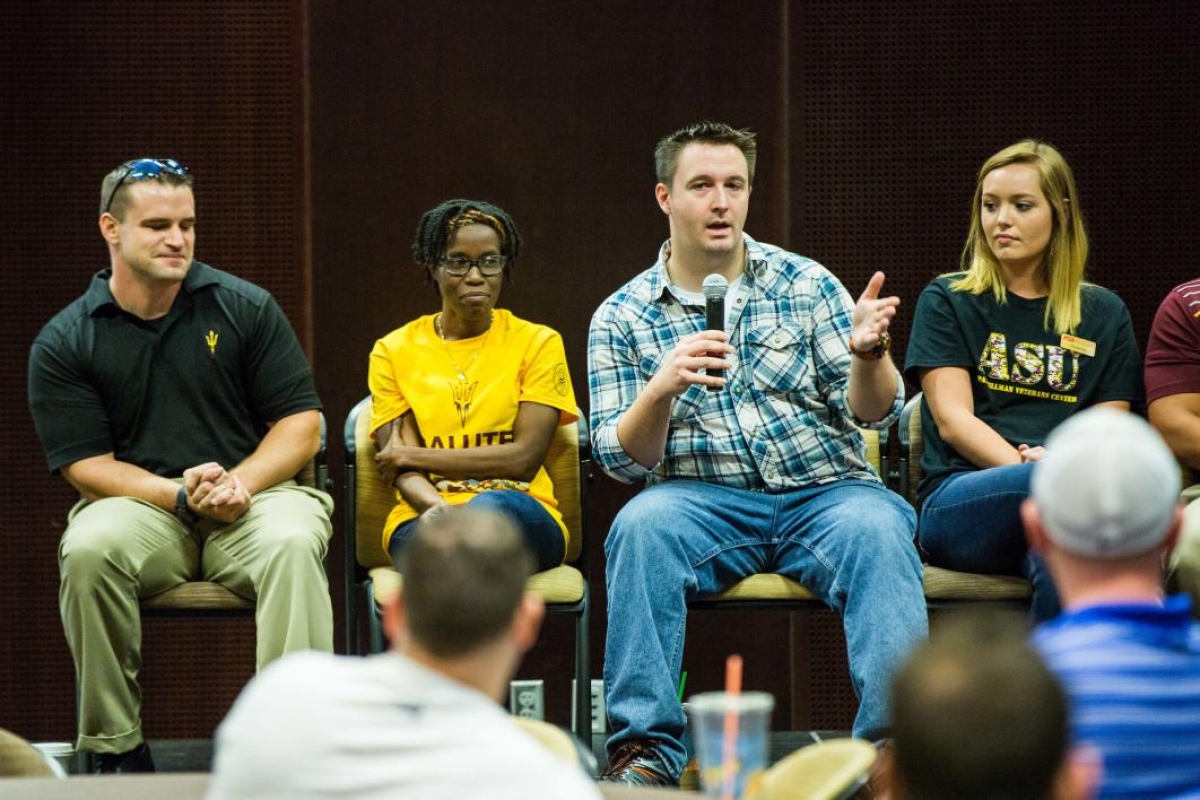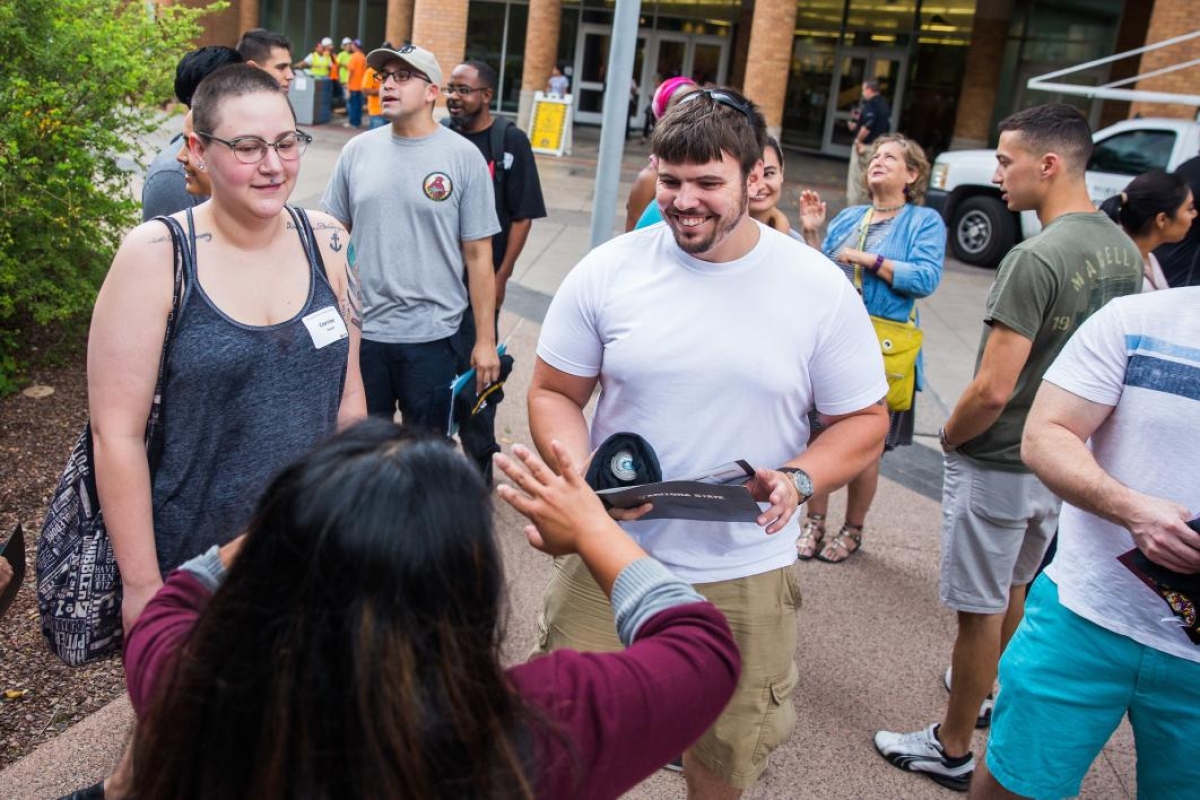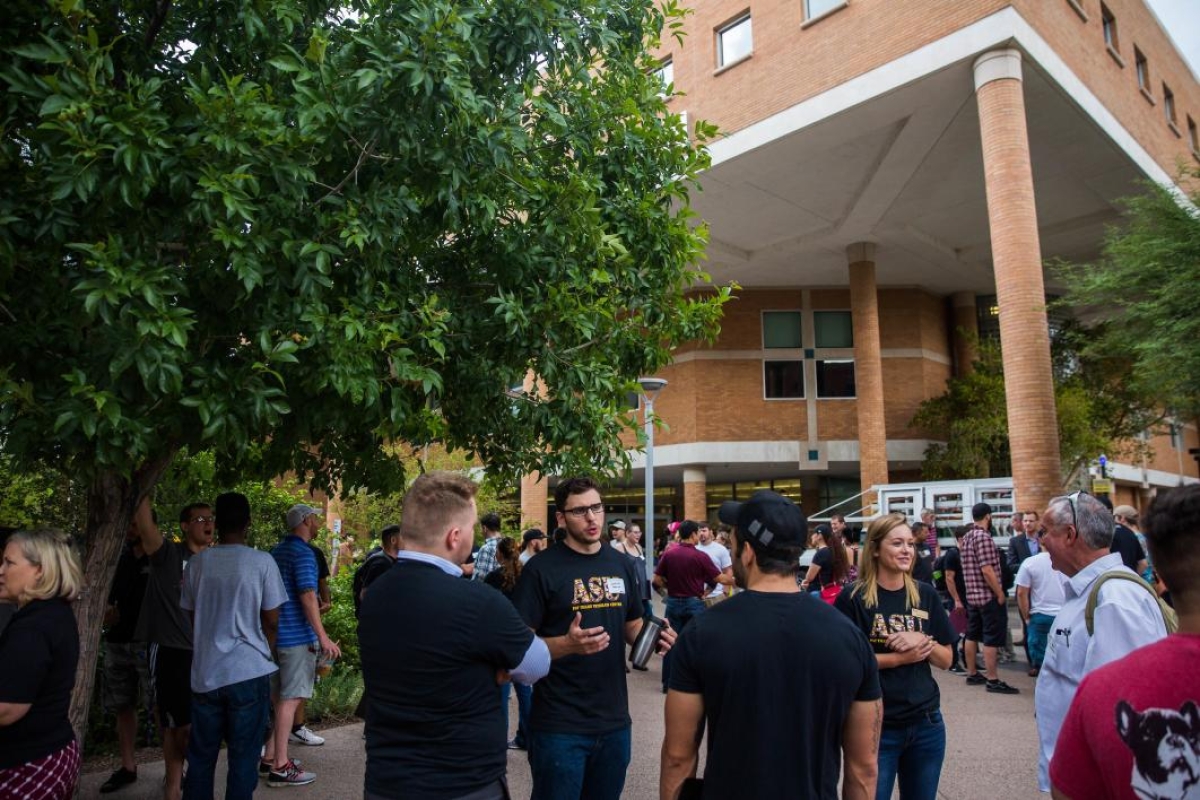Official programs are necessary and helpful, but Pat Tillman Veterans Center organizers say students with military experience often learn the most from others who’ve served.
With that in mind, the Arizona State University-based veterans’ support organization assembled a panel of Sun Devil veterans from the Army, Navy, Air Force and Marines to speak with more than 50 of their incoming peers as part of the Veterans Fall Welcome on Friday at the Memorial Union on the Tempe campus.
The orientation information from the center's staffers and tips from the seven panelists were geared toward vets — but any student could benefit from much of what was shared.
Here are the top tips:
1. Success is a team sport
In the military, everyone is a member of a defined and assigned team. “That doesn’t happen outside the military but teamwork is every bit as important,” said Steve Borden, Pat Tillman Veterans Center director. “There is nobody that succeeds as a student by doing it by themselves.”
Whether through study groups, group work assigned in class or connecting with faculty, teaching assistants or others, students succeed by being part of a team, Borden said. The difference outside of the military is that veterans have to reach out to find their team, it’s not automatically assigned.
“You choose who is going to be on your team,” said Borden.
2. VA is the way
One of the most valuable resources on campus for veterans is Troy Rundle, the Department of Veterans Affairs representative who manages the Vet Success on Campus program. The VA handles federal educational benefits and sponsors helpful classes and workshops. This semester’s planned workshops include “Maximizing Your Benefits” and “Understanding USAJobs and Building a Federal Resume,” Rundle said. The VA and the veterans center will also partner for a class titled “Student Success for Veterans.”
3. Network
Networking is one of the most important aspects of being a student at ASU, the panelists said. They encourage students to take advantage of the countless clubs, internship programs and other activities ASU offers.
“If you’re only trying to get a degree, you can do it online,” said Daniel Travis, an engineering management major and Army veteran. “You need to go out and meet people and communicate, because those are the people that are going to help you get jobs later. Those are people that are going to help you get into research. Those are people that are going to help you set things up.”
Oksanna Scheidt, a military family member, credits the veterans center with helping her build a network of people, and she encourages others to build their own networks and get involved.
“College is a time for you to branch out and do what you think will be in your best interest,” said Scheidt, who grew up in a Navy family and is pursuing her undergraduate degree in educational studies. “There are so many things to see, places to go, and you need to take advantage of it while you’re here.”
4. Apply for scholarships
Since veterans have the GI Bill, most don’t pursue scholarships. But the panel and staff encouraged students to apply and compete for the many available scholarships. Veterans who earn other scholarships can save their VA education benefits for later on.
“If we don’t take advantage of the scholarships that are available, they will go away,” said Marine veteran Chris Cadeau, a sports journalism major.
5. Take useful classes
All classes can be useful because they provide the opportunity to learn something new, but in college a useless class is one that cannot be applied toward a student's major, and for veterans there is a bigger monetary impact.
“When you pick your classes, run a DARS report,” said Lorenza Mitchell, a member of the Air National Guard majoring in biochemistry, referring to the Degree Audit Reporting System that tracks students’ progress toward graduation. “Because you have to make sure that your classes are going to fall into your degree plan. If they don’t fall into your degree plan, the VA is not going to pay for them.”
6. Conquer stress
College life is stressful, the panelists acknowledged. But there are tactics to lessen the stress. One of them is organization.
“The way I handle stress that comes from school is by ensuring that I’m organized,” said Ryan Wadding, a Marine veteran majoring in political science. “Half of the stress I have is when I’m not organized and when I don’t know what’s going on. Have some kind of organization system, take great notes during your classes and have an outlet.”
By having an “outlet,” Wadding is suggesting students make time for a hobby or get involved in clubs as another way to relieve stress.
7. Be like Pat
Former ASU football standout Pat Tillman, namesake of ASU’s veterans center, represents a legacy of passion, positivity and academic excellence.
“The reason I wanted to bring up Pat is because he was the best of everything,” said Michelle Loposky, a military advocate at the Pat Tillman Veterans Center, at the end of the panel discussion. “He could really do no wrong.”
Loposky encouraged the student veterans to follow the example of Pat Tillman and do their best.
“If you bring out the very best of who you are, just like he did, then you just emulated his own rightness,” she said. “It’s not about you trying to become him, but about being the best of yourself.”
More Sun Devil community

A champion's gift: Donation from former Sun Devil helps renovate softball stadium
Jackie Vasquez-Lapan can hear the words today as clearly as she did 17 years ago.In 2008, Vasquez-Lapan was an outfielder on Arizona State University’s national championship-winning softball team,…

Student-led business organization celebrates community, Indigenous heritage
ASU has seen significant growth in Native American student enrollment in recent years. And yet, Native American students make up less than 2% of the student population.A member of the Navajo Nation,…

Remembering ASU physical chemist Andrew Chizmeshya
Andrew Chizmeshya, a computational chemist and materials scientist whose work spanned over three decades at Arizona State University, died on March 7 at the age of 63.A dedicated mentor and cherished…


